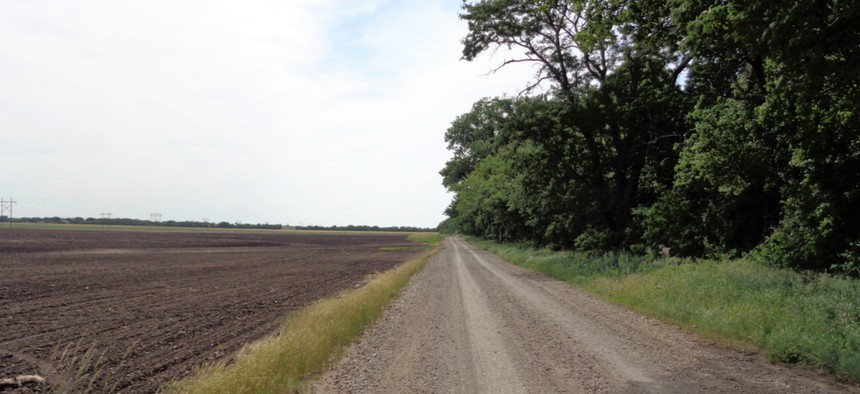Grant Funding Will Jumpstart Statewide Broadband Mapping in Kansas

A rural road near Emporia, Kansas Shutterstock
A data-collection partnership will identify service shortcomings.
Kansas officials will undertake a statewide broadband mapping program that will help a recently formed task force identify and close coverage gaps. This week, the Information Network of Kansas Board of Directors approved a $300,000 grant request from the office of Gov. Jeff Colyer for the mapping project.
“Access to quality broadband services is vital for Kansas communities to compete for jobs and people, and we can’t improve what we don’t measure,” Colyer said in a statement. “Producing this statewide broadband map positions our state for long-term growth in the rapidly expanding digital economy and helps us ensure that all Kansans are benefitting from these new opportunities.”
The state’s mapping effort will be a partnership with Connected Nation, a non-profit organization that works with federal, state and local government agencies to help close broadband gaps. This will, according to an announcement, produce “a granular statewide broadband availability map through a data collection process in collaboration with the state’s broadband service providers, for use by the general public and the Task Force” and collect public feedback and deploy engineers to validate service availability based on the user feedback.
The Statewide Broadband Expansion Planning Task Force was created through H.B. 2701, signed by the governor earlier this year.
Broadband service shortcomings in rural areas is something that’s felt acutely in many parts of the state. “Kansans in every county of the state know where the shortcomings on broadband connectivity reside,” said Rich Felts, president of the Kansas Farm Bureau and a member of the state’s task force. “Having an up-to-date map that accurately reflects areas that lack connectivity in both wired and wireless broadband will allow for future broadband development to improve public safety, and enhance agricultural technology, education, telemedicine and economic vitality.”
Michael Grass is Executive Editor of Government Executive’s Route Fifty and is based in Seattle.
NEXT STORY: FirstNet brings internet to tribal police






